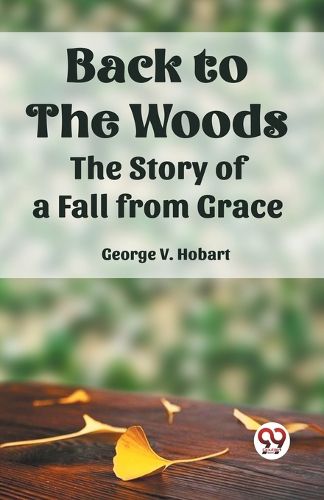Readings Newsletter
Become a Readings Member to make your shopping experience even easier.
Sign in or sign up for free!
You’re not far away from qualifying for FREE standard shipping within Australia
You’ve qualified for FREE standard shipping within Australia
The cart is loading…






This title is printed to order. This book may have been self-published. If so, we cannot guarantee the quality of the content. In the main most books will have gone through the editing process however some may not. We therefore suggest that you be aware of this before ordering this book. If in doubt check either the author or publisher’s details as we are unable to accept any returns unless they are faulty. Please contact us if you have any questions.
"Back to the Woods" is a comedic play written via George V. Hobart, an American playwright and stand-up comedian. The play is ready towards the backdrop of the Adirondack Mountains and revolves around the misadventures of the protagonist, a metropolis slicker named John Marvin, who unearths himself entangled within the rustic life of the woods. The plot unfolds as John Marvin, seeking refuge from the complexities of urban dwelling, ventures into the Adirondacks for a restful retreat. However, his attempt at a nonviolent sojourn is quick disrupted by using a series of comical and absurd activities. The play humorously contrasts the sophistication of city lifestyles with the simplicity of rural life, portraying the conflict of cultures and values. Hobart employs witty communicate, situational comedy, and exaggerated characters to highlight the comedic capability inside the collision between city sophistication and rural simplicity. "Back to the Woods" displays the comedic sensibilities of its time and offers a satirical observation at the societal contrasts frequent within the past due nineteenth century. Overall, George V. Hobart's "Back to the Woods" is a lighthearted and unique exploration of the cultural clash among town life and rural escapades, turning in laughs thru its humorous depiction of a fish-out-of-water revel in within the desolate tract.
$9.00 standard shipping within Australia
FREE standard shipping within Australia for orders over $100.00
Express & International shipping calculated at checkout
This title is printed to order. This book may have been self-published. If so, we cannot guarantee the quality of the content. In the main most books will have gone through the editing process however some may not. We therefore suggest that you be aware of this before ordering this book. If in doubt check either the author or publisher’s details as we are unable to accept any returns unless they are faulty. Please contact us if you have any questions.
"Back to the Woods" is a comedic play written via George V. Hobart, an American playwright and stand-up comedian. The play is ready towards the backdrop of the Adirondack Mountains and revolves around the misadventures of the protagonist, a metropolis slicker named John Marvin, who unearths himself entangled within the rustic life of the woods. The plot unfolds as John Marvin, seeking refuge from the complexities of urban dwelling, ventures into the Adirondacks for a restful retreat. However, his attempt at a nonviolent sojourn is quick disrupted by using a series of comical and absurd activities. The play humorously contrasts the sophistication of city lifestyles with the simplicity of rural life, portraying the conflict of cultures and values. Hobart employs witty communicate, situational comedy, and exaggerated characters to highlight the comedic capability inside the collision between city sophistication and rural simplicity. "Back to the Woods" displays the comedic sensibilities of its time and offers a satirical observation at the societal contrasts frequent within the past due nineteenth century. Overall, George V. Hobart's "Back to the Woods" is a lighthearted and unique exploration of the cultural clash among town life and rural escapades, turning in laughs thru its humorous depiction of a fish-out-of-water revel in within the desolate tract.